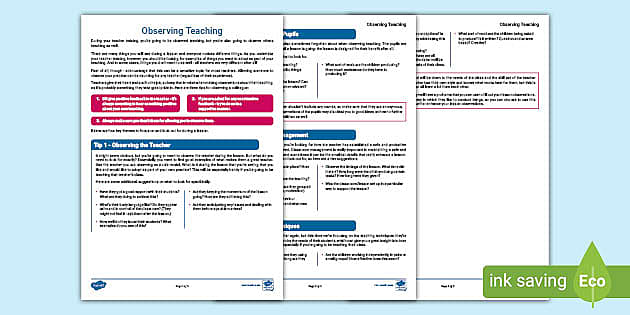



7 min
January 4, 2022
Why is the Core Content Framework potentially problematic? Today’s Digest explores UCL’s criticism of this key guidance and provides tips for how trainees can develop their practice beyond it.
The past few months have been tumultuous in the Initial Teacher Training (ITT) sector. In September, the government released its proposals for drastic changes to all training programmes in England, but this was met with opposition from providers. In December, the government responded to the comments and confirmed which changes were going ahead. However, this was still met with criticism from those prominent in the ITT sector.
Alongside the proposed changes for the future of the sector, September saw a big change already put in place with all training providers adopting the Core Content Framework which provides guidance on the minimum entitlement of training that trainee teachers must receive. The Core Content Framework is not age-phase or subject-specific, so is general enough to cover trainee teachers for all key stages.

Just before Christmas, University College London’s Institute of Education (UCL, IOE) condemned both the reforms and the Core Content Framework. It’s significant that the criticism is coming from UCL’S IOE: every year since 2014, they’ve been ranked as number one for education worldwide in the QS World University Rankings by subject.
Today’s Digest will explore the IOE’s comments about the Core Content Framework. After exploring the criticism, we will then provide guidance on what this means for trainee teachers.
In a blog post published on the 15th December, the IOE states that the government response to the public consultation and the confirmed changes to the sector ‘muddle’ what is meant by ‘expertise’ in teaching. The IOE criticises the Core Content Framework (which now lies at the heart of all teacher training programmes) because it requires subject specialisms to be an add-on. The IOE states: ‘it is a fundamental flaw to suggest that teaching is first and foremost a generalist practice’.
As part of the reforms, all ITT providers will now need to apply for accreditation to be able to run teacher training courses in England (regardless of their history as an ITT provider). The application process for accreditation opens in February 2022. As part of this accreditation process, providers must add subject-specific teaching elements to their curriculum, effectively moving beyond the Core Content Framework. In their initial blog, the IOE expresses its frustration at this, stating that subject-specific and age-related content ‘is not something to be ‘added’ to a core teacher training curriculum - it is the essence of learning how to teach something worthwhile. It is rooted in subjects.’
In a further blog post published on the 20th December, the IOE continues to criticise the Core Content Framework, describing it as ‘generic’. They state that ‘the problem is that by attempting to make this entitlement applicable to everyone, it fails to satisfy anyone’.
At Twinkl Digest, we’ve been working through the Core Content Framework (CCF), providing a series of articles that help you to develop your pedagogical knowledge and your in-classroom practice. Despite opposition, the CCF is in place at all training providers and looks to be so for the foreseeable future. Understanding what you should be learning about on your training will help you to develop your practice, so check Twinkl Digest regularly for these articles.
It’s significant to note, however, that the CCF (and the Teachers’ Standards it aligns with) provides the minimum entitlement of what you should learn and experience during your training and the minimum qualities and abilities you should demonstrate to qualify as a teacher. The IOE’s comments highlight that trainee teachers need to become specialists in both the subjects they teach and the specific age-phases they teach - two areas that go beyond the remit of the Core Content Framework.
As most trainees are quite early on in their training at this point in the year, it may seem daunting to be expected to meet the Teachers’ Standards and go beyond them to be an effective teacher. Firstly, no one is expecting you to be at (or even, near) this stage yet. You still have so much to learn, so please don’t panic. What the IOE’s comments do show us is that it’s never too early to consider the specifics of your training by focusing on the schools you’re completing placements in and the schools you may wish to apply for roles in the future. Here are some tips to help you develop your practice beyond what is stipulated in the CCF:

How are you finding your teacher training? Let me know on social media!

Lead Writer and Editor - Twinkl Digest
Sophie has been part of team Twinkl Digest since its inception in 2021 and was appointed as lead writer and editor in March 2022. She is responsible for guiding the direction of Digest and also writes articles for both trainee and early career teachers.
Sophie has previously worked as a teaching assistant, private tutor and secondary school English teacher, teaching students aged 11-18. She loves to share her knowledge of the education sector through her writing, helping new teachers head into the classroom feeling informed, supported and confident.
In her spare time, Sophie is the ultimate bookworm. She is also a fan of yoga, comedy, and the odd bit of DIY.
